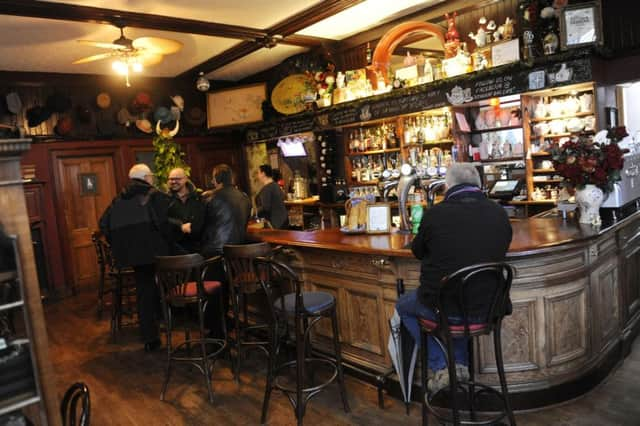Colin Valentine: Local pub is beating heart of a community


As a long-standing Friends of the Scotsman contributor I try to read as many of my fellow contributors’ articles as I can. As with everything in life, some I like, some I don’t, and some move me quite deeply, especially where charities are concerned. This happened to me quite recently when reading about the wonderful work done at Leuchie House in North Berwick and my first thought was that I didn’t deserve to be on the same page as the guys there because, after all, all I talk about is pubs and beer. Then I thought a bit more about it and, as I have noted in previous articles, pubs all over Scotland raise millions of pounds for charity and help Leuchie House do their great work.
Many people think along the lines of it’s only a pub, what do they matter? With Christmas right around the corner, the busiest time of the year for pubs, it is worth stepping back and thinking about their role in people’s lives. Recent research shows that, despite the closures of the past ten years, there are still in the region of 4,500 pubs across Scotland that employ more than 40,000 people, of whom 40 per cent are under-25.
Advertisement
Hide AdAdvertisement
Hide AdPubs contribute £1.5 billion to the Scottish economy and generate more than £900 million in tax revenue.
To use a hackneyed, yet entirely appropriate, phrase, this isn’t small beer. This is a huge industry – it is the third most popular activity for overseas visitors to the United Kingdom, with over 40 per cent visiting at least one pub during their stay – and should be helped to flourish as a major economic force. Unlike just about every other industry in Scotland, pubs aren’t confined to just one specific area, be that urban, suburban or rural. They are all over the country, from the hot spots of our city and town centres, villages and hamlets to standalone pubs that seem to appear out of nowhere.
One of the most recent additions to the Scottish pub scene is Rutherfords in Kelso. It is situated in what used to be a cashmere shop and is Scotland’s first ever micropub, although there are almost 200 in England.
A micropub is small, most often in a former shop, eschews television, music, gaming machines, and lager, and majors on real ale and locally sourced snacks.
It also keeps much shorter hours, with Rutherfords closing at 9pm every night apart from Friday and Saturday when they close at 10pm – who says that publicans aren’t innovative? Pubs are the original social media hubs – a place to meet friends, old and new, catch up on gossip and make sure that everyone in the locality is alright because “old Jack” always came in at 8.30pm on the dot and, if he didn’t, someone would call round to make sure that he was OK.
They were, and are, the beating heart of communities and a safe place to take that special person on your first date – it will surprise no-one that I, like many people, met my spouse in a pub. It well-known that moderate consumption of alcohol can be good for your health physically, while socialising with fellow beer drinkers in a pub is very good for your health mentally, especially if you live alone. Of course, it isn’t like the 1970s where all you had to do was open a pub with one lager, one heavy and a couple of blended whiskies and other spirits and expect people to come pouring through the door.
You have to do something different to ensure that people will come to your pub and, increasingly, that doesn’t just mean offering food, but real ale as well. Research shows that, if pubs sell food, then their real ale sales increase markedly. So, as we come to that time of the year where pubs are much busier than any other time – this year Friday the 18 December is the day known as Black Friday in the pub trade for reasons I am sure that I don’t have to explain – spare a thought for the hard-working bar staff trying to ensure that you have an enjoyable night out in a safe environment.
Also keep in mind once the festive season has been and gone that January is traditionally the quietest month by far for the trade. Try to make sure that you visit your local pub, which is much better than sitting in the house on your own desperately waiting for the clocks to change in March and the return of Champions League football.
• Colin Valentine is National chairman of the Campaign for Real Ale (Camra).